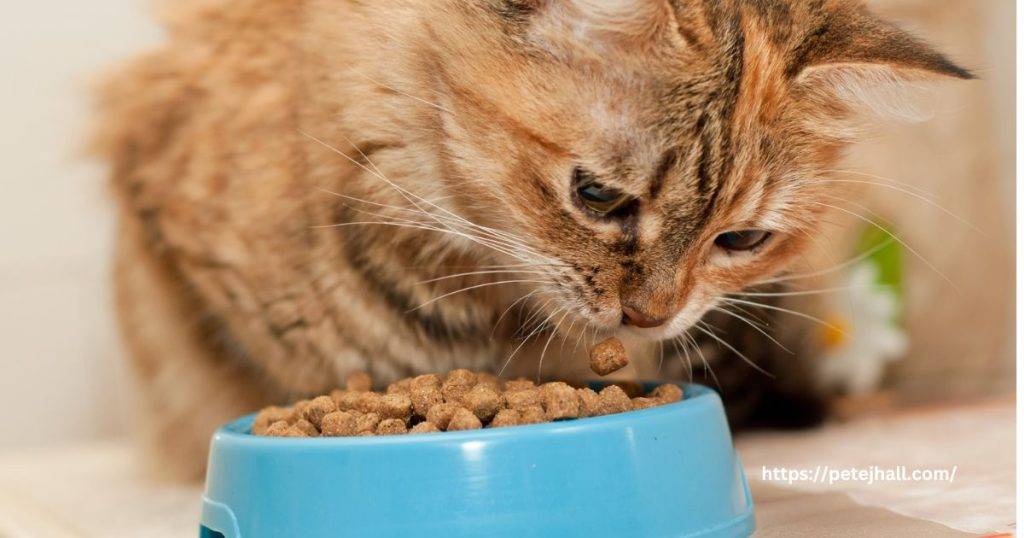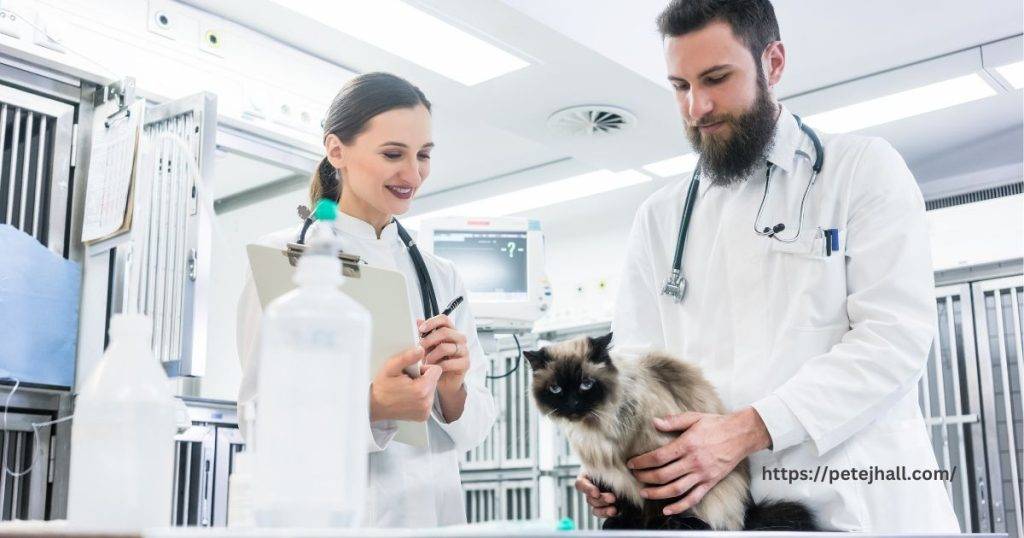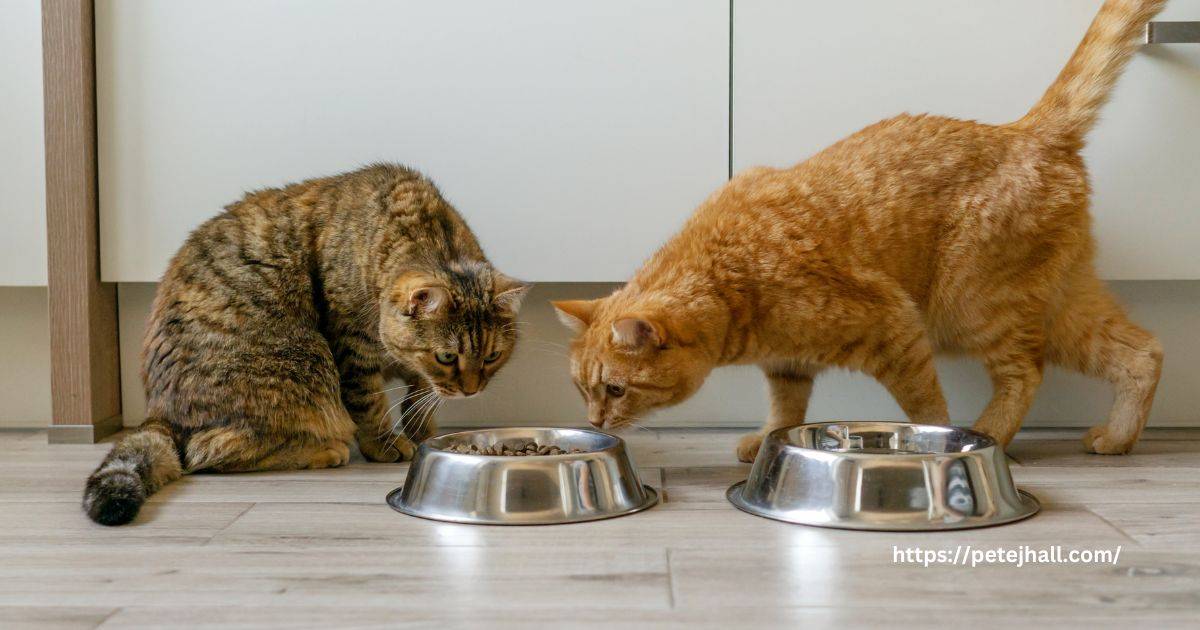Continuing care for your cat keeping table scraps to a minimum is crucial for your cat’s health and quality of life, especially if your cat enjoys the extras that adults enjoy. Cat owners commonly ask, “When can I switch my cat to adult food and opt out of kitten kibble? Learning When do you switch cats to adult food? can help their growth, development, and lifelong health. Read on to learn about transitioning considerations.
Which Should You Feed Your Kitten vs. Adult?
Kitten foods cater to the unique nutritional requirements of younger cats. Adult cat food, Adult cat food it is richer in calories, protein, and fat than adult cats, so your pet can get all the energy it needs for growth. However, the formulation of adult cat food preserves good health and meets an adult feline’s energy needs without requiring extra calories for growth.

When do you switch cats to adult food?
Age Matters
Most of the time, cats are 12 months old when they make their switch from kitten food to mature-adult cat kibble. That being said, exact timing may vary depending on the cat itself and its breed. Because of their longer growth times, larger breeds like Maine Coons might do better on kitten food until they are 18–24 months.
Weight and body conditions
Make sure to closely monitor your cat’s weight and body condition if you decide to transition to adult food. When your cat is approximately a year old and has achieved their adult weight, which is typically around 10 pounds for many house cats, it may be the appropriate time to transition to adult food.
Activity Level
You should also consider cat activity levels. Kittens have a tendency to be more active than adult cats, which means that they need to take in more calories. A shift in their lifestyle necessitates an increase in energy, and if your cat has slowed down, it may indicate that they are ready to transition from kitten milk to adult food.
Signs: It’s Time to Transition.
Growth Finish: Have they stopped growing bigger in size and weight? These are pretty good signs that adult food would be beneficial for your cat.
Loss of appetite for Kitten Food: If your cat has stopped eating or is not enjoying his kitten meals as they used to, it may indicate that your pet needs additional food on its plate.
Health and Wellness: If your kitten is healthy and doing excellent on their current diet, they can stay that way as you begin to transition them onto adult food.
How to Make the Transition
Gradual Transition
It is critical to transition your cat from kitten food to adult stuff slowly; it should take 7–10 days. This transition will not cause any gastrointesStart by blending some adult food with their kitten food, gradually increasing the proportion of adult food while decreasing the amount of kitten foo dining kitten.
Monitor their reactions.

As you transition, assess how your cat reacts to the new food. Watch for any symptoms of GI distress, such as vomiting or diarrhea. If your cat seems to be experiencing any issues, it is advisable to slow down the transition process and consult a veterinarian if the symptoms persist.
Choose quality foods.
Adult Cat Food: Select high-quality adult cat food that provides complete and balanced nutrition, making it suitable for your cat. Search for choices that have actual meat listed as the primary ingredient in addition to artificial ingredients. Speak to your veterinarian about the food that is right for your individual cat.
Conclusion
One of a cat’s life milestones is transitioning to adult food, and the timing can vary depending on factors such as age, weight, or activitMost cats can transition to adult food at 12 months, but larger breeds should stick with kitten kibble for an extended period. Period. It’s important to proceed slowly and closely monitor your cat during this transition. Support your kitty’s overall health and happiness by giving them proper nutrition throughout their life.
Should you have any concerns regarding your feline’s diet or health, do not hesitate to consult with a vet who can offer cat-specific advice.
FAQ
When can I introduce my kitten to adult food?
Kittens can usually transition to adult food at about a year old. However, you may continue feeding kitten food to large breeds for 18 months to 2 years.
What is the Difference between Kitten Food and Adult Food?
Kitten food is more calorie dense and higher in protein and fat to provide all the energy needed for growth, whereas adult cat food has fewer calories but a similar to higher level of protein on a dry matter basis.
How do I know my cat is mature enough to switch her adult food?
If your cat is ready for a change, you may notice that she has already reached her adult weight and hasn’t been eating as much kitten food or has slowed down on all the running around.
But what if my cat, who is now 12 months old, is still extremely playful and active?
At 12 months of age, if your cat is still active or playful in a routine manner, you would likely do well to stay committed to concurrently monitoring their weight and body condition. Even if they are fine, it might still be a beneficial idea to move off of puppy food. If you have concerns, contact your vet.
How do I switch my cat to adult food?
Slowly integrate adult food into their diet over a period of 7 to 10 days, only mixing small portions of grown cat food with kitten foods. Gradually increase the percentage of grown beans while continuing to deduce the kitten scheme.

